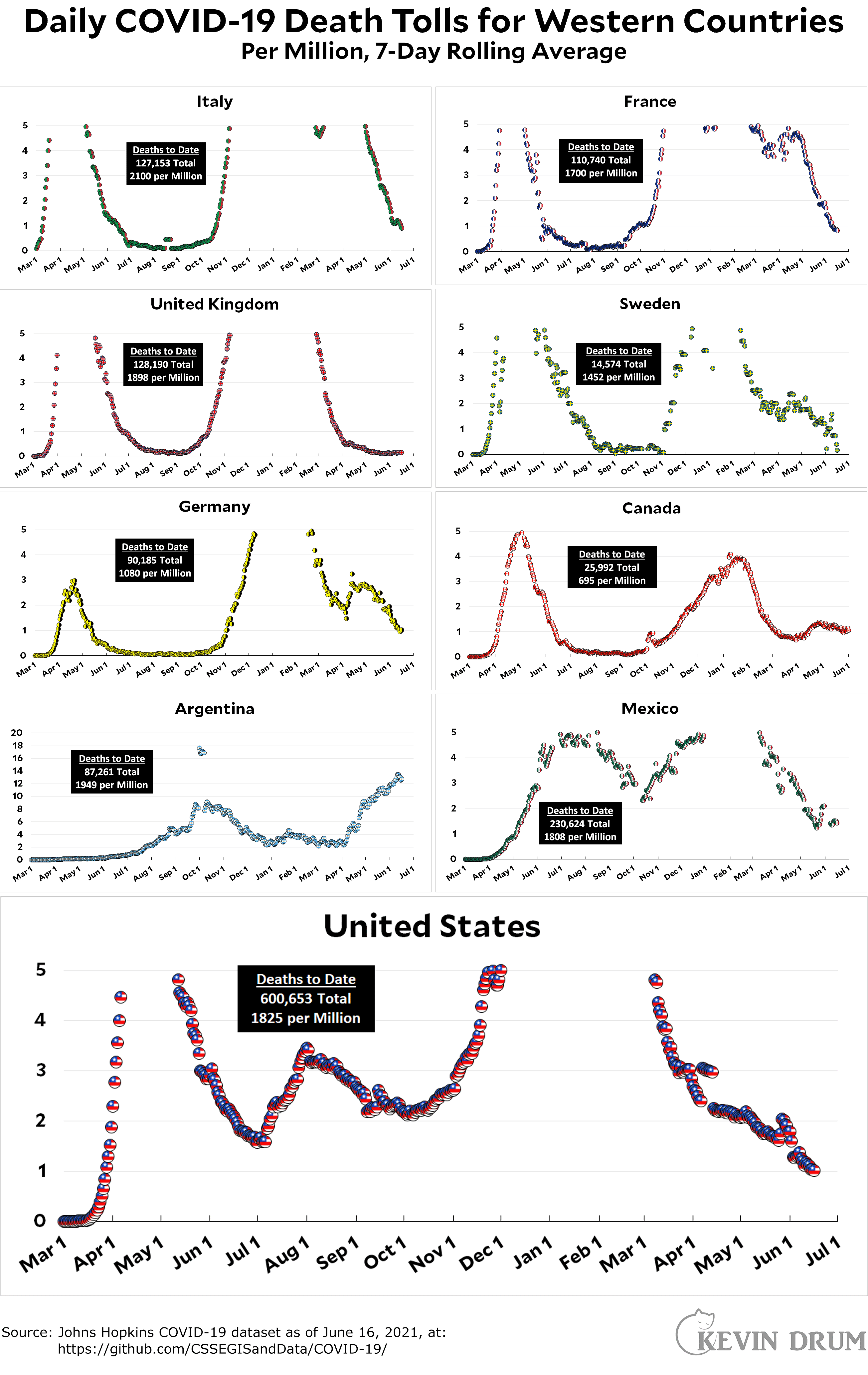Here’s the officially reported coronavirus death toll through June 16. The raw data from Johns Hopkins is here.

Cats, charts, and politics

Here’s the officially reported coronavirus death toll through June 16. The raw data from Johns Hopkins is here.

Comments are closed.
SCOTUS ruled 7-2 against Republican AGs and two individual plaintiffs who sued to eliminate the ACA, in part, because Republicans in Congress successfully repealed the mandate section, thus preventing the individual plaintiffs from gaining standing to sue. -- https://bityl.co/7O41
Gotta appreciate the tremendous power of irony, here.
I note that “ Republicans in Congress successfully repealed the mandate section” is not accurate, either as plain English or as a legal argument.
In the landmark case regarding the issue of the constitionality of that section, what Chief Justice Roberts wrote is that the federal government has that power as part of its powers of taxation.
So then what the Republican congress did is set the penalty to zero for violation of that section. OK, that’s certainly within their powers of taxation, i.e, set the rate. Then various suits have been filed claiming that without a penalty, that section is nullified, and under the contention of non-severability, therefore the whole ACA is nullified.
There is a technical legal term for that line of reasoning. It’s BULLSHIT.
The reason it’s bullshit is that there are thousands of precedents well established in jurisdictions—federal, state, and local—throughout the USA, where a tax rate for something has been set to zero but the tax code remains on the books, so that in the future it does not require new legislation to set the rate back to a non-zero amount.
From the CDC: percent adults vaccinated (1st dose):
overall: 64.7%
Republic of Palau 99
Vermont 83.9
Hawaii 82.2
Massachusetts 80.7
Connecticut 77.6
New Jersey 76.7
Maine 76.3
Rhode Island 74.2
Pennsylvania 73.7
New Mexico 73.3
Maryland 72.7
California 72.4
New Hampshire 71.9
Washington 71.9
New York State 70.4
District of Columbia 70.3
Illinois 69.7
Virginia 69.5
Guam 69.4
Minnesota 68.8
Delaware 68.4
Colorado 68.2
Oregon 68.2
Wisconsin 64.2
Nebraska 63.2
South Dakota 63.1
Puerto Rico 62.9
Iowa 62.8
Utah 62.5
Florida 62.3
Michigan 61.3
Kansas 61
Kentucky 59.9
Alaska 59.7
Texas 59.5
Arizona 59.4
Nevada 59.4
Northern Mariana Islands 58.8
Ohio 58.3
Montana 57.3
Oklahoma 55.5
North Dakota 54.7
North Carolina 54.6
Indiana 54.2
Missouri 54
American Samoa 53.8
South Carolina 52.5
Georgia 52.2
Idaho 51.6
Arkansas 51.4
West Virginia 50.7
Tennessee 50.5
Wyoming 48.4
Louisiana 47.3
Virgin Islands 47.3
Alabama 47
Mississippi 45.1
and the link to CDC data is here:
https://covid.cdc.gov/covid-data-tracker/#vaccinations
'Supertasters' may have some innate protection against COVID-19,
https://www.livescience.com/covid-supertaster-genes.html